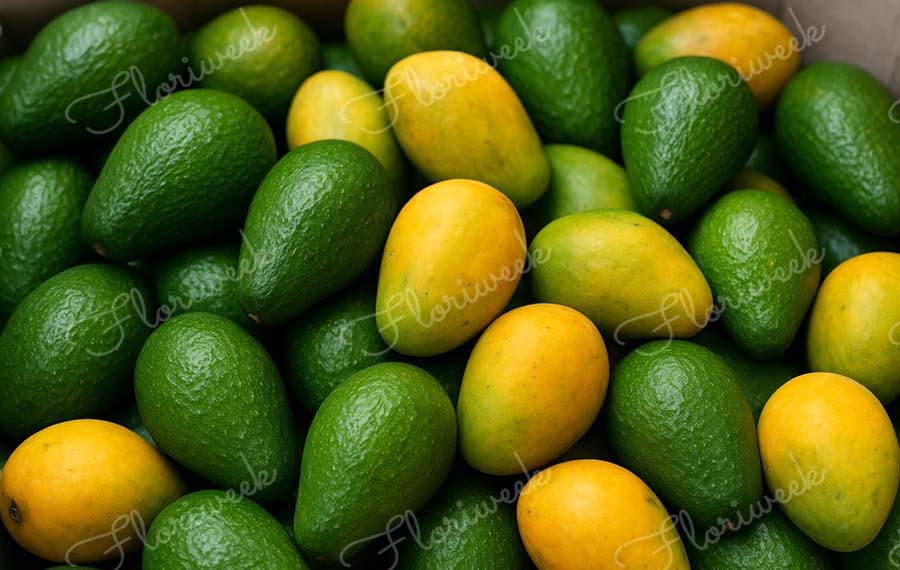Bʏ Mᴀʀʏ Mᴡᴇɴᴅᴇ
October 16, 2025


This month (October 2025), Kenya’s Agriculture and Food Authority (AFA) issued a stern warning to exporters of mangoes and avocados, emphasizing strict prohibitions against mixing consignments of these two fruits in the same shipment. This directive is part of wider efforts by the Kenyan government to safeguard export integrity, improve compliance with established horticultural regulations, and protect the reputation of its high-value agricultural exports in global markets.
Why the Concern Over Consignment Mixing?
Kenya is recognized as a global leader in the export of fresh mangoes and avocados, both of which contribute significantly to the country’s agricultural economy and foreign exchange earnings. Maintaining consistent quality and adhering to international phytosanitary and trade standards is imperative for continued market access and consumer trust.
Mixing consignments of mangoes with avocados, often done in attempts to circumvent restrictions or maximize freight space, poses significant risks. It compromises traceability, hampers the enforcement of export controls, and increases the chances of contamination or quarantine breaches. The practice can also mislead buyers about the origin and quality of their purchases, ultimately damaging Kenya’s market reputation.
Regulatory Framework: Section 20(5) of the Crops (Horticultural Crops) Regulations, 2020
To address these issues, Kenya’s horticultural sector is regulated under the Crops (Horticultural Crops) Regulations, 2020. Section 20(5) specifically prohibits the mixing of different horticultural products within the same consignment when such practices undermine regulatory controls or present risks to product integrity.
This section empowers the Agriculture and Food Authority to act decisively against exporters who violate these rules, including imposing penalties and potential suspension of export licenses. The strict enforcement of this regulation is critical to deter illicit practices and uphold Kenya’s commitments to international trade agreements and quality standards.
Recent Enforcement Actions by AFA
Following observations of some exporters attempting to blend mango and avocado shipments, especially during the 2025/2026 export season suspension of avocado sea shipments, AFA communicated that such actions would be met with zero tolerance.
This warning comes amid AFA’s broader campaign to tighten export controls, particularly around the avocado sector, whose sea export season was suspended from October 20, 2025, to protect fruit quality and maintain market confidence globally.
AFA’s surveillance teams conduct inspections at key export facilities and ports to detect irregular shipping practices and ensure strict adherence. Exporters found mixing consignments risk confiscation of goods, legal sanctions, and blacklisting from future export opportunities.
Risks and Consequences of Consignment Mixing
- Loss of Traceability: Mixed consignments weaken the ability to trace products back to their respective farms or production zones. Traceability is foundational for addressing food safety incidents, managing recalls, and verifying compliance with environmental or certification standards.
- Quarantine and Inspection Complexities: Different fruits have distinct phytosanitary requirements. For example, avocado exports may be subject to specific treatments or inspections not required for mangoes. Mixing shipments complicates inspection processes, increasing chances for delays and shipment rejections by importing countries.
- Quality Degradation and Contamination: Storing different fruits together may accelerate spoilage or contamination due to cross-fruit ethylene exposure or pests harbored by one fruit type. This compromises the quality of both products and can lead to post-harvest losses.
- Market Credibility Risks: Importers expect clear labeling and segregation of products. Any breach in this expectation damages buyer trust and can lead to canceled contracts or stricter future regulations impacting all exporters.
Stakeholder Perspectives: Growers, Exporters, and Regulators
For Farmers and Growers: The prohibition protects producers’ investments by ensuring their crop quality is not undermined by unscrupulous logistics practices. Maintaining a consistent, quality-controlled supply chain ensures growers receive fair prices and retain access to premium markets.
For Exporters: While mixing consignments may seem to offer logistical convenience or cost savings, the regulatory risk outweighs short-term gains. Exporters must invest in proper handling, storage, and shipping infrastructure to comply, thereby sustaining long-term business viability.
For Regulators: Enforcement of anti-mixing policies reflects commitment to meeting international phytosanitary standards, securing healthy trade relationships, and preserving Kenya’s brand as a reliable supplier of fresh produce.
Broader Industry Context: Export Challenges and Opportunities
Kenya’s horticulture export sector faces evolving demands from global markets that increasingly emphasize compliance, sustainability, and food safety. Regulatory bodies like AFA are under pressure to ensure standards are enforced, especially within lucrative sectors such as avocado and mango exports, which have faced scrutiny over issues from pesticide residues to maturity standards.
Consignment mixing is symptomatic of broader supply chain management challenges, including:
- Need for improved cold chain and logistics capabilities
- Capacity building for farmers and exporters in post-harvest management
- Enhanced coordination between government agencies overseeing agriculture, trade, and customs
Addressing these will not only eliminate practices like mixing consignments but also position Kenyan exporters to tap into new markets requiring traceability and certification such as organic and fair trade labels.
International Trade and Compliance Implications
Global buyers and regulatory authorities require confidence in the supply chain before accepting imports. Violations like consignment mixing can lead to:
- Increased inspection and detention rates at ports of entry
- Trade sanctions or temporary bans
- Loss of participation in preferential trade agreements or schemes
Kenya’s adherence to clear, well-enforced export regulations thus ensures continued market access and strengthens its reputation for reliability in a competitive global produce market.
Educating and Supporting Compliance
To support compliance, AFA and industry bodies have increasingly emphasized training and outreach for exporters and farmers. This includes workshops on labeling, handling procedures, and understanding legal requirements.
Improved transparency within supply chains, digital documentation, and traceability technology adoption can further reduce incidences of consignment mixing and enhance overall sector governance.
Upholding Market Integrity for Sustainable Growth
Kenya’s stringent stance against mango-avocado consignment mixing underscores a broader commitment to quality, compliance, and sustainable horticulture export growth. By enforcing Section 20(5) of the Crops (Horticultural Crops) Regulations, 2020, the government aims to protect both domestic stakeholders and international buyers.
This approach ensures that Kenya maintains its position as a trusted supplier in global fresh produce markets, safeguarding the livelihoods of thousands of farmers and exporters.
Sustained collaboration among regulators, exporters, and growers will be vital to overcoming logistical challenges and evolving consumer expectations, ultimately securing Kenya’s horticulture industry’s competitiveness for years to come.
